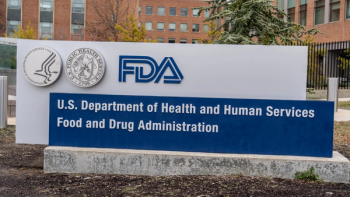
Purposeful Partnerships for Post-COVID Era
Pharma should be the ‘glue’ that bonds healthcare organizations together to solve society’s most pressing challenges.
The COVID-19 pandemic has swept aside decades of reputational issues for the pharmaceutical industry. Companies have been lauded for their speed of thought and action through the crisis, with concerted efforts that have pulled us back from the brink. The significant role played by pharma in the development and rollout of vaccines has vividly demonstrated its ability to put people before profit.
The past year has been a wonderful illustrator of the power of collaboration, and how healthcare organizations can come together for the greater good–increasing loyalty and trust in the process.
Pharma now needs to take the lead in building on that foundation, sustaining key partnerships that will deliver better outcomes for patients and address healthcare system challenges far into the future.
The pharmaceutical industry’s image has never been so positive. A study fielded by Porter Novelli shows that one in three healthcare providers (HCPs) globally believe that pharma has done the best job of supporting coronavirus efforts compared to other industries. COVID-19 has changed the view of pharma companies as existing solely to provide drug treatments for patients, showing how they can effectively collaborate with government, HCPs, payers and patient organizations to find holistic solutions.
The pandemic has broken down traditional barriers, with information being shared more willingly and all sides cooperating to meet the needs of patient populations. Pharma has been at the nexus of this collaboration–helping to align traditionally competing interests, and bringing together organizations to support patient care. Hall & Partners’ quantitative research shows that pharma is perceived as a welcome and uniting force by HCPs and payers alike, from product development all the way through patient delivery and education.
Never before has pharma’s purpose been more clearly recognized. And this is important. In a recent global healthcare research study by Hall & Partners in partnership with Porter Novelli, more than 90% of healthcare professionals–and 80% percent of payers–said that a pharma company’s ability to demonstrate its purpose impacts their prescribing decisions. This is especially the case when drug treatments are perceived at parity in price, efficacy or safety.
Maintaining the momentum
The pandemic has provided a window of opportunity for organizations to step away from their profiteering image and highlight a broader purpose. This will become an expectation moving forward.
Now is the time for healthcare companies to address expectations in the post pandemic world, capitalizing on this newfound trust and addressing conditions that have been pushed aside. Just imagine, for a moment, what the future may be if the active collaboration applied to COVID-19 is extended to global threats like diabetes and cardiovascular disease.
Pharma companies should embody a leadership role in this: sustaining the relationships that have been forged, driving purpose-driven responsibilities, and playing an active part in building consortiums that work in bolder, more integrated and impactful ways towards shared objectives and milestones.
Our research suggests that pharma has the potential to become the role model for the way society and business operate together to solve society’s most pressing healthcare challenges. Moreover, organizations will inevitably be judged on how effectively they do so.
To realize that potential, pharma companies must evaluate their corporate brand reputation in the new context; consciously pursuing an agenda focused on fairness, equality, sustainability, diversity and opportunity. They also need to be able to flex to meet the changing needs of patients and society, and ensure they remain a key partner in healthcare conversations and strategies across the world.
This requires a clear focus in four core areas.
Be explicitly purposeful. Companies must communicate and demonstrate their purpose authentically through actions that have clear results. Their value must be lived, proven and shared every day. Well-constructed narratives are just step one; press releases and corporate governance statements alone will not build trust capital. Pharma must consistently show its societal ambitions, values and capabilities far beyond COVID, in word and deed.
Measure and adapt purpose. By using insight to continuously monitor their customer’s perception of their purpose, brands can make adjustments and improvements to deliver on it more effectively. Gaining an understanding of the emotional drivers and the behavioral science behind purpose will guide how to best interpret and communicate it.
Nurture empowering partnerships. Closer and more rewarding purposeful partnerships require give and take. This means making behavioral shifts and doing things for each other rather than for self-benefit. Pharma needs to listen to what governments, stakeholders and patients hope for and need from their relationships, learn from them, and be ready to adapt.
Understand what patients want. Pharma companies need to be more responsive to events and trends. For instance,
Healthcare has a fantastic opportunity to capitalize on the seismic shift driven by COVID-19, continuing the value-driven and purposeful behaviors that have emerged. Pharma companies can put themselves right at the center, becoming the glue that bonds payers, patients, healthcare professionals and governments together to create this new dynamic and collaborative era. Together, we have the power to change the course of disease states around the world.
Pharma has an integral role and purpose within society. We’ve made a great start on fulfilling them, but in truth, the hard work has only just begun.
Stacy Vaughn, Managing Partner of US Healthcare at Hall & Partners
Newsletter
Lead with insight with the Pharmaceutical Executive newsletter, featuring strategic analysis, leadership trends, and market intelligence for biopharma decision-makers.




